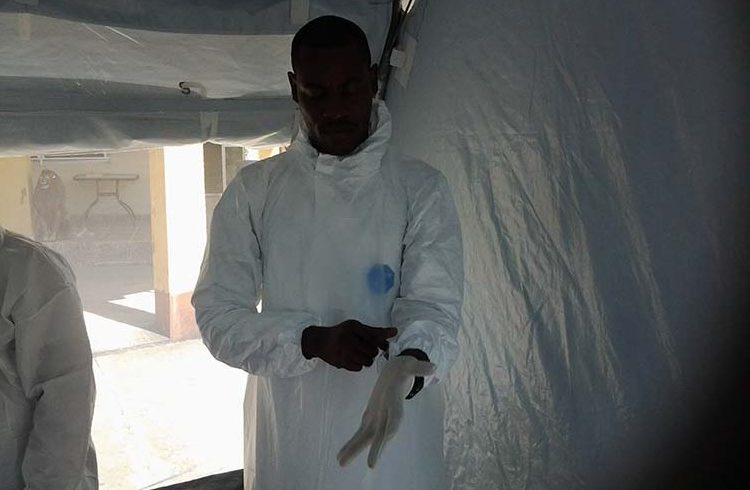I wrote to Lariel Laza Cardenas as soon I had a PC in front. I introduced myself as a journalist and asked a few questions: the answer soon traveled from Sierra Leone to my screen.
He is a native of the Artemisa municipality of Bahia Honda and has practiced nursing for a decade, a path that he had not planned on walking: “Really I chose it because I did not get Medicine, but during the studies I had very good teachers who taught me to love the profession”.
That love led him to apply the theory in everyday practice at the José Ramón Martínez hospital, in the municipality of Guanajay and even beyond national borders, because in January 2011 he left for Jamaica, where he remained for three years in internationalist medical missions. A few months after his return, when they announced the need to incorporate Cuban doctors in the battle against Ebola virus being waged in Africa, he went to Sierra Leone.
About his motivations to volunteer, he said: “I wanted to experience what the job is during an epidemic and help those who suffer from a condition in appalling conditions.”
The comments about the danger involved a task of this nature for the personnel involved in each corner then surfaced, workplace, home … and probably Lariel home was no exception; however, fear gave way to the understanding and support:
“I told my mom I was going no matter what, because I wanted to. As always, she advised me to take care of me and fulfill all. Now the communication is by phone, that is, messages, and one or maybe two calls a month because they are expensive. Through some friends I also send you emails. ”
Since October 2, when he arrived in Sierra Leone, the nurse communicates with his family that way. At this time, after a period of preparation, he is treating patients in a very different scenario than usual.
“A group of about 61 colleagues are working in a hospital built by the British charity Save the Children. We’re doing six-hour shifts, in four groups. Each group has four teams entering every hour; it is the maximum that you can be in a room.
We daily medicate patients, feed them, hydrate them and are awaiting the development of their conditions state. It is essential to maintain biosecurity measures. In case of any discomfort, we go out, although the time has not ended because our health is paramount, “he argues.
According to Lariel, the Cuban brigade, 165 members, maintains very good relations, although not all are located in the same place. On the acceptance by the population, he expressed:
“We had a good reception, imagine that here they only had 20-odd doctors before the epidemic and to get us was a blessing for them. In addition, we were the first ones to step up and let family and everything in Cuba to come to help them cope with this dangerous epidemic for nothing “.
Late in his email, Lariel added as anecdote what follows: “Whenever I wrote to some friend or acquaintance they just told me you’re crazy, that Ebola kills. I could only respond them: no, if I’m crazy, 164 Cubans more are. If we, the staff of health, do not face this epidemic, who is going to do it, and if we do not stop it here, what will be of the world. In the end they just say watch out, we appreciate the decision you have taken. ”
For this youngster, 34, the challenge today ranks as the biggest events in his life so far. “We face an invisible enemy that has no distinction of skin color, social status, nothing. I have gained experience and my goal is, at least, prevent the spread of the disease and return alive to Cuba. ”











Bravo! for the Cuban Doctors and health workers. They are an example to the world and a confirmation of Cuba’s longstanding commitment in solidarity with Africa, be it to liberate nations from colonialism, to protect them from apartheid or to provide educational and medical services.